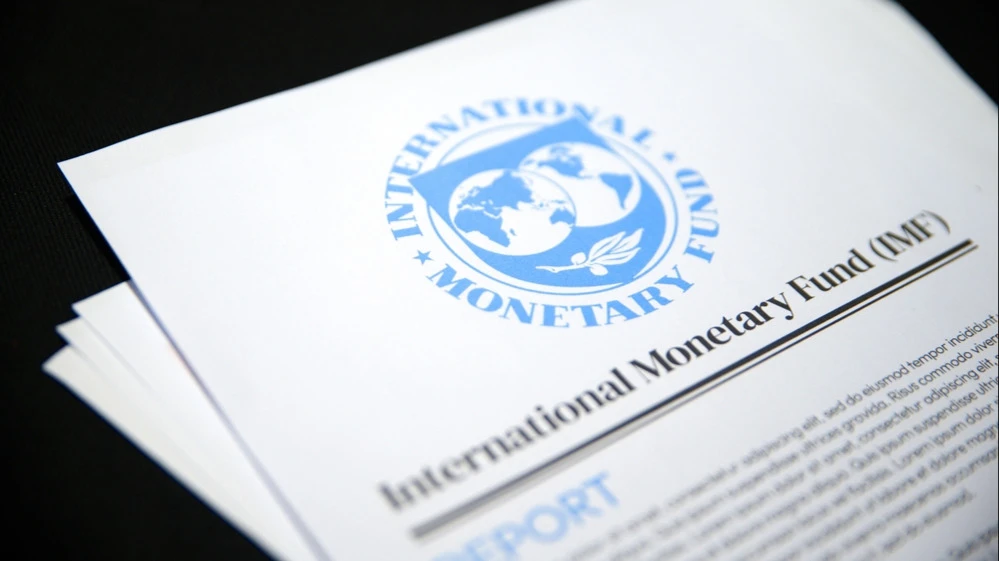The IMF has improved its forecast for global GDP. Why did it warn of a "bleak outlook"?
The increase in the forecast is attributed to Trump's duties and the weak dollar, but the effect will not last long

The world economy will grow by 3.2% in 2025, said the International Monetary Fund. It has thus improved its own forecast: in July, it expected development by 3%. However, "bleak prospects" await the world ahead, the IMF warned.
Details
The reason for revising the estimate of global GDP growth in 2025 was the duties of U.S. President Donald Trump: there was a surge in business activity amid the efforts of companies and households to buy goods before prices rise, according to the IMF World Economic Outlook. Also, according to the IMF, the weakening of the dollar, which contributed to the growth of global trade, led to the revision of the estimate from 3% to 3.2%.
However, both factors are temporary, so growth will slow to 3.1% as early as next year, the IMF said. According to the report, short- and long-term forecasts for the future point to "gloomy prospects".
"The situation is not as bad as we feared, but worse than we expected a year ago and worse than we need," IMF chief economist Pierre-Olivier Gourinchas said as quoted by Bloomberg. - Risks remain skewed to the downside."
Among the factors that helped mitigate the impact of the duty shock in the first half of 2025, Gurinsha highlighted the investment boom in artificial intelligence. According to him, China has been able to soften the blow of high duties by reorienting exports to Asian and European markets, as well as through fiscal support measures. At the same time, fiscal stimulus in Germany had a positive impact on the rest of the eurozone.
"Despite the presence of offsetting factors, the duty shock further worsens the already weak growth outlook," Gurinsha wrote. - We expect a slowdown in the second half of this year and only a partial recovery in 2026."
Regional forecasts
According to the IMF, U.S. economic growth will slow to 2% in 2025, a sharp decline from 2024, when GDP growth was 2.8%. Growth will stabilize at 2.1% in 2026, the IMF said.
In the euro area, GDP growth is expected to accelerate from 0.7% in 2024 to 1.2% in 2025 and 1.1% in 2026.
China's economy, by contrast, will continue to lose momentum, from a projected 4.8% in 2025 to 4.2% in 2026, according to the Ma.
What worries the IMF
The effect of high duties is starting to show: in particular, in the U.S., key inflation is rising and unemployment has increased slightly, the report said. In other countries, inflation has stabilized above the central banks' target, and the outlook remains unclear, which complicates the work of monetary policy regulators.
Among additional sources of risk, the IMF points to the continued growth of borrowing. According to the Fund, governments, especially in Europe, will have to find ways to cut spending, taking into account demographic factors, growing military budgets and investments in energy security.
"The arithmetic of government debt sustainability in the post-pandemic era is complicated by high debt levels, deteriorating primary budgets, higher interest rates and lower economic growth," the survey said.
The IMF also warned that problems in the rapidly growing sector of non-bank financial organizations (such as pension funds, insurance companies and investment funds) can create risks for banks and make it difficult to manage financial crises. The paper notes that these entities can "threaten the financial system" through a variety of channels, including popular direct lending funds, the real estate market, and cryptocurrencies. According to the IMF, these entities now control about half of the world's financial assets and account for up to 50% of daily turnover in foreign exchange markets. When there are disruptions in the non-banking environment, such as downgrades or falling collateral values, it can have a significant impact on banks' capital and liquidity ratios, the report said.
The IMF recommends strengthening supervision, ensuring that investment funds have adequate liquidity management tools to reduce the risk of forced sales, and more attention to the direct lending market.
This article was AI-translated and verified by a human editor
